Understanding HOA Fees | Homeowner’s 2022 Ultimate Guide
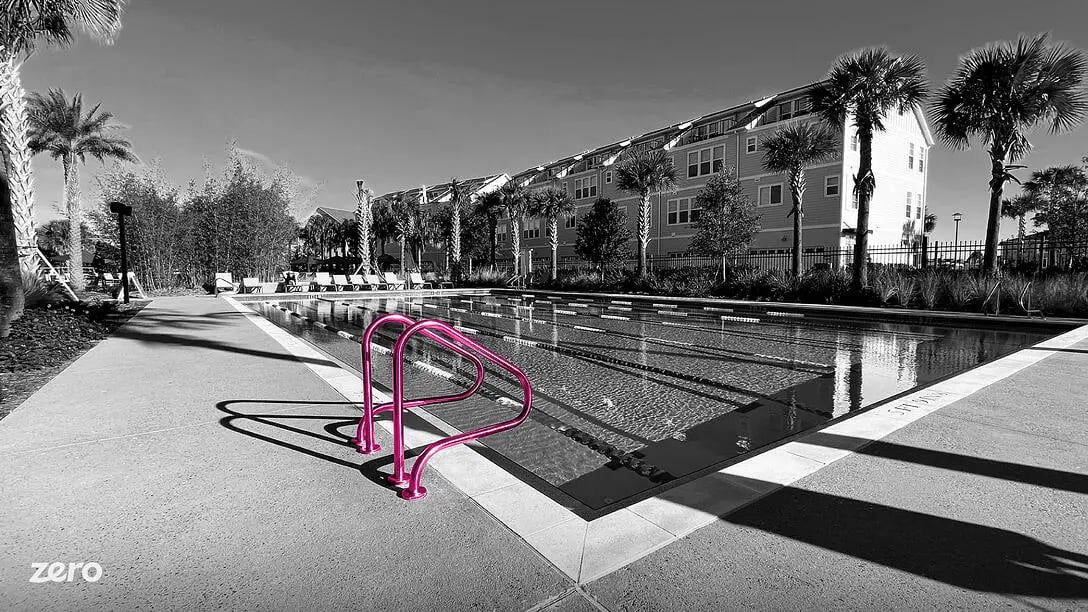
Research indicates that 58% of homeowners in HOA communities and single-family homes pay an average monthly fee of $250. Despite this substantial number, homeowners lack adequate information about HOA fees and why they have to pay for them in the first place.
Typically, properties in homeowners' association communities come with the requirement that the homeowners will pay a certain amount of money per month. These costs are generally used to provide additional amenities like gym equipment, swimming pools, and security.
All in all, HOA fees are a way of ensuring that both current and future homeowners can enjoy all of the features and components of the neighborhood for years. Let's take a deeper dive into what HOA fees are and how they affect your finances.
Do you know what the differences between a COA, HOA, and POA are? Read all about them here.
What Are HOA Fees?
An HOA fee is the amount of money homeowners are required to pay their association. These funds go directly to a management company that schedules maintenance and improvement within the community.
HOA fees are usually levied on condominium owners. However, they may also be applicable to homeowners of single-family homes. Let's take a closer look at what HOA fees are.
What Does an HOA Do?
HOA fees are used to pay expenses related to the upkeep of a condominium community’s common areas. Communities often include lobbies, swimming pools, patios, and elevators, among other features. Plus, there are usually services offered as amenities, like landscaping or standard utilities such as water, sewage, and garbage disposal.
The homeowner’s association may even impose specific assessments intended to take care of major repairs like roofing or elevator replacement. At the same time, HOA fees that apply to single-family homes in various neighborhoods are put towards neighborhood amenities such as clubhouses, tennis courts, or parks
How Much Are HOA Fees?
Depending on the association, HOA fees may vary drastically. However, some experts believe that an accurate range of HOA fees is anywhere from $100 to $700 per month. Keep in mind that the exact costs of your homeowner’s association fees will be dependent on what your HOA provides you.
Oftentimes the more services and amenities in your community, the higher your HOA fees will be. Moreover, you may have to deal with even higher costs if the reserve funds are not managed adequately.
Are HOA Fees Tax Deductible?
HOA dues are not deductible for your personal residence. But keep in mind that if you rent out your property and pay on-time HOA fees, you can reap the benefits of a tax break.
Moreover, a home office deduction may also be possible if you work from your place of residence. Reach out to a tax accountant to learn more about your tax break options.
What Do HOA Fees Cover?
These dues cover many amenities and services, including but not limited to the following:
- Lobbies
- Patios
- Landscaping
- Swimming pools
- Tennis courts
- Community clubhouses
- Elevators
- Water and sewage
- Pest Control inspection
- Garbage disposal
Six Ways HOA Dues Affect Your Finances
Before purchasing a home that requires HOA fees, you should first thoroughly understand these payment processes. Let's discuss the different ways HOA dues can affect your monthly finances.
1. HOA Fees Can Change
Before you purchase a home that is part of an HOA, you and your lender need to spend some time evaluating the property's monthly HOA costs. This way, you can determine whether you can afford the dues in addition to your mortgage.
One major caveat of HOA fees is that they can change over time. The fees can spike up when home projects require additional financing or as the result of automatic inflation adjustments. In some cases, housing payments can become unaffordable for homeowners strictly because of the HOA fees, so make sure you ask your lender about the HOA's history of increasing fees.
2. They Don't Cover Everything
HOA fees cover routine costs as well as occasional expenses. However, in some cases, critical projects and emergency repairs will require unexpected out-of-pocket fees for homeowners. In these cases, homeowners will have to pay an additional assessment which can cost several hundreds or thousands of dollars.
3. There Could Be Legal Consequences
If you live in a multi-unit property, HOA fees go towards a premium insurance policy that doesn't cover your personal property, your unit's interior, the home you reside in, damage originating from your unit, or your personal liability.
Discuss the risks associated with an HOA with your insurance provider to find out which policy will match your needs the best. Make sure you fully understand the prices of the policy before you purchase an HOA property to ensure that you are aware of its future costs.
4. Your Credit Can Be Affected
Purchasing a home in an HOA community means you've agreed to pay these monthly fees. If you fail to pay the costs, you'll owe money to your HOA. Plus, your HOA has the power to send past-due accounts to collections.
They may even put a lien on your home or initiate a foreclosure. From there, collection accounts and public records will start appearing on your credit reports. These negative marks on your credit reports will make it harder for you to secure other loans or find affordable housing in the future.
5. You Pay for Things You Don't Own
HOA fees cover the costs of various repairs and renovations in your neighborhood. But the fact of the matter is that you may not need everything that you pay fees for.
That is the major downside of living in a shared space. For instance, you may not ever use the pool or the rooftop patio but you'll still have to help pay for them anyway.
6. Pay Dues at Closing
When you purchase a property that boasts as an HOA community, you'll have to pay dues for every day you live there. On the brighter side, you only have to pay a prorated amount once you’ve sold your home
Our Mortgage Learning Center features blogs on a wide range of mortgage and refinancing topics.
What Happens if I Don't Pay My HOA Fees?
If homeowners fail to pay the requisitory assessments, the homeowner’s association can collect the dues with the help of various conventional collection processes. From sending demand letters and making collection calls, to initiating foreclosures and filing a civil suit, homeowner’s associations will pursue legal action against homeowners who don’t pay their HOA fees.
Understanding Your HOA
Homeowner’s association fees refer to monthly dues that homeowner’s associations collect. Typically, HOA fees are used to pay for costs of repairs, maintenance, and other amenities in the community.
Overall, it is important to understand HOA fees and what these fees entail prior to purchasing a property. To make sure this property’s community is in your best interest, further investigate what the community’s amenities are and how these payments contribute to your neighborhood.
Take the 1st Step Toward a New Home Today!
This page last updated: October 11, 2022
Read more on this topic below.

When you buy a house and start making mortgage payments, your payment consists of four different components, known...

If you have gone through the pre-approval process but need to take a deeper dive into how much house to buy,...

The vast majority of mortgage loans require you to put down a certain percentage of the selling price upfront....

Whether you’re a first-time buyer or you’ve purchased a home before, you’ve likely heard of a homeowner’s association....

People buy their homes for a number of reasons. Affordability, stability, and comfort are some of the most...

There’s a lot of expenses to keep in mind when you’re thinking about buying a home. Between the price of the home, property taxes, your mortgage...
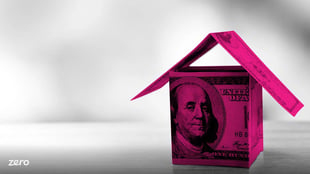
Conventional loans are mortgages offered by private lenders, banks, and institutions that are not backed by the government. Unlike FHA, USDA,...

Some homebuyers refuse to purchase a property if it is part of a property owner association. On the...

Private mortgage insurance is something millions of homeowners pay for each year. However, this type of insurance does not protect

When you first set out to buy a home, it can feel like you’re taking an exam you forgot to study for. You have to make quick...

When looking to refinance or buy a house, the pre-qualified vs pre-approved mortgage debate can be...

A mortgage is often the largest monthly expense homeowners pay. The thought of reducing the amount...
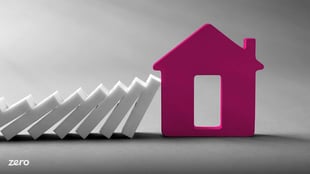
A home doesn’t just fall into foreclosure status. There are stages and processes that take place behind the scenes before...

It’s likely that your mortgage loan will be the largest loan you have during your lifetime. Mortgages are not a one size...

Refinancing your home can save you thousands of dollars per year! When you extrapolate that savings over...

For many people, owning a home is part of the American dream. To make this dream a reality, most people will take out a...

Whenever you’re looking to buy a house, you’ll quickly realize there are a lot of fees associated with obtaining a mortgage....
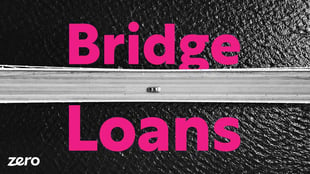
A bridge loan is a short-term loan a borrower may use while a more long-term financing contract is finalized. Bridge...

A loan estimate is crucial to obtain when looking for a loan. This estimate not only gives you the details of a mortgage but also compares offers...

There are many moving parts and various people you’ll deal with throughout the homebuying process....

If you’re looking to buy a house, and do not have a mountain of cash saved up, you’ll need to consider getting a mortgage to help you finance this...

If you find a property that you’re highly interested in buying but are concerned that the seller might choose...
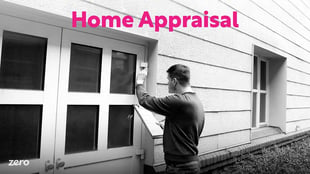
Buying a home? You’ll likely need to get it appraised before you receive the clear to close. If you’re wondering...

If you’re an active service member, a veteran, or the surviving spouse of a veteran, and you want to ...

Innovative and cost-effective home improvement ideas are all over the internet, especially when it comes to...

There’s no doubt, COVID-19 changed the world in countless ways and took us all by surprise. From an...

Whenever you are borrowing money, whether it’s for a new mortgage, a refinance, credit card, or car loan, you’ll hear...

If you’re new to buying a home, you probably have quickly realized the overwhelming amount of options there...

If you’ve already gone through the lengthy process of writing offers, securing financing, and arranging inspections for your...

One of the most important steps to buying a home is deciding on a mortgage loan and deciding on a loan involves settling on a good...

First time home buyers are often surprised when they learn about all of the expenses that are associated with ...

Purchasing real estate is not as simple as finding the right home, submitting an offer, and signing the closing paperwork; many...
